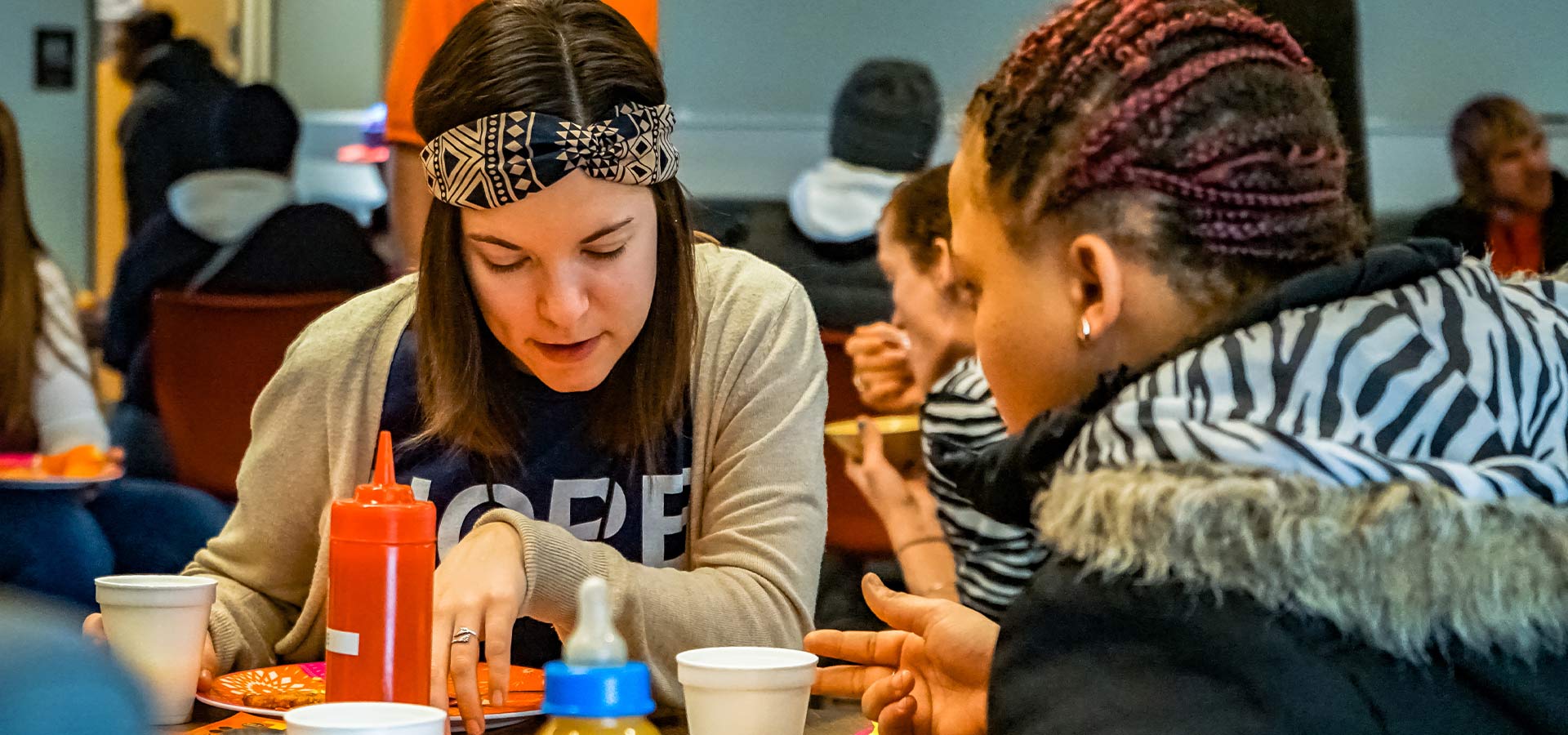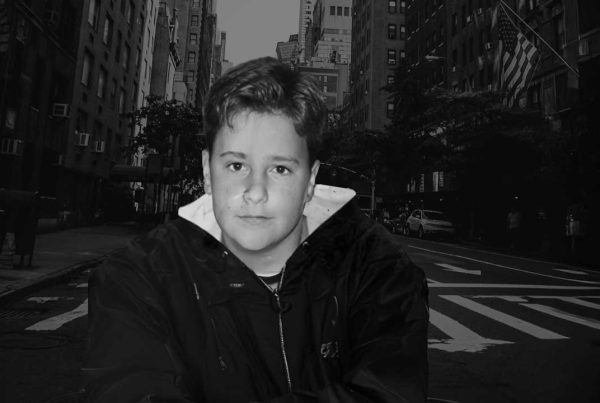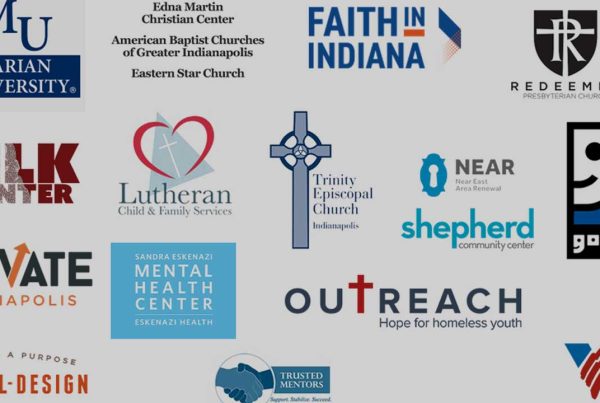Even in the most mundane times – assuming such times exist – poverty-fighting organizations face daunting odds. So many diverse factors contribute to economic instability that it can seem impossible to make a real difference.
So, when you throw in the disruptions of the last two years – the pandemic, political and economic upheaval and so on – even the best anti-poverty efforts likely have been severely tested, especially when you consider the fact that the most effective programs tend to build on relationships, and, as we all know, relationships have been especially difficult to nurture in the past two years.
Fortunately, we have in Indianapolis organizations willing to work through and around such obstacles. We are delighted to count Faith & Action Grant Recipients among those organizations. Chosen based on their effective programs for breaking the cycle of poverty, they have encountered considerable obstacles in the past two years and found ways to respond.
For example, the Near East Area Renewal (NEAR) and Shepherd Community Center received a $30,000 grant in 2020 to help fund Indiana’s first intentional intergenerational living and learning center, a place where senior adults and young children will find shelter, care, hospitality, growth, and hope by connecting in community. To this end, NEAR redeveloped the former IPS School 78 at 3734 East Vermont Street into the Minnie Hartmann Center, which includes 64 units of affordable senior housing and a Shepherd Community Center-operated early learning/childcare center designed to serve 148 children. Plans also included training for families from John Boner Neighborhood Centers.
And then the pandemic hit, not only blocking efforts to bring children and seniors together but, as NEAR Executive Director John Hay and Shepherd Community Center Associate Director Andrew Green pointed out, also compounding the many challenges confronting people living in poverty.
“What we have verifiably known about poverty has been reinforced in this project,” Green said. “Poverty exacts a debilitating toll on households and families without financial resources to access decent, affordable housing and affordable childcare/early learning.”
Daunted but not deterred, Shepherd Community pivoted to offer Minnie Hartmann Neighborhood Childcare, a full-time faith-based early childhood program designed to encourage intellectual, physical, social-emotional and spiritual growth in children, with plans to revisit the intergenerational programming in the future.
Public Advocates in Community Re-Entry (PACE) faced similar barriers to its relationship-based grant-supported program. Focusing its $30,000 grant on removing barriers to successful re-entry for men and women coming out of prison and their families, PACE offers job placements, transportation assistance, peer recovery coaching, high school equivalency preparation, mental health counseling, and more.
Reflecting on the last two years, PACE Executive Director Rhiannon Edwards said it was a time for learning unprecedented lessons about life and poverty. “Under normal circumstances, our clients face an uphill battle as they are released from incarceration into a world that seems to shut all doors to opportunity and self-sufficiency, and even to basic needs like housing and jobs, to anyone with a criminal history,” she said. “The ability to offer care-coordinated, one-on-one coaching appointments in addition to providing a variety of assistance to individual in need is what allows our clients and agency to thrive.”
The need for PACE and its impact can’t be overstated: While studies have shown that, without services, 45% of prisoners will re-offend, PACE participants experienced a recidivism rate of only 2.9% in 2018.
Hovey Street Church of Christ received a $15,000 Faith & Action grant to expand its Evolve Ministry, which works with teens struggling with trauma and educates the community on the tools required to overcome mental and physical poverty. An innovative collaboration with PACE would provide mentors for teens in the 46218 area-code, an area with significant levels of community-based trauma related to violence, structural racism, and historical inequalities.
As you might expect, the pandemic blocked and complicated efforts to meet with kids and to recruit and retain mentors. When asked what keeps him motivated to press forward despite such challenges, Pastor Denell Howard said it’s the “Why?”
“We do it for young black boys to be successful in spite of all the challenges,” Howard said. “You don’t realize how resilient, strong, and creative these young men are when they are ‘unshackled’ … When they are free to think, move and live, be and breath, the young black boys buy into the belief that they can do it, they become increasingly independent and impact the community in a positive way.”
With those words, Pastor Howard reflects the mindset we consistently find with Faith & Action Grantees as well as others fighting poverty in the community: This hard work has been made harder by the events of the past two years, but that does not mean they have quit. Instead, they have pivoted, persevered, innovated and adapted. Why? Because poverty is unacceptable. Because people living in poverty deserve better. And because each person that emerges from poverty makes the community stronger.





